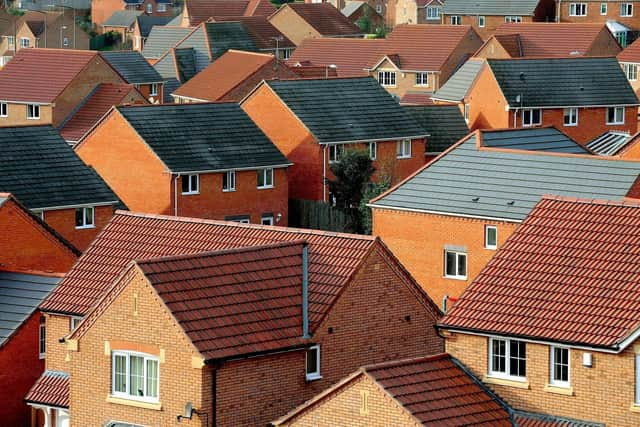Nationwide data shows UK house prices rising unexpectedly following months of decline
and live on Freeview channel 276
With house prices increasing by 0.5% between March and April and borrowing costs easing slightly, there are small signs that the UK property market is slowly stabilising following recent turbulence which peaked last autumn following Liz Truss’s disastrous mini budget.
The increase of 0.5% also surpassed analysts’ forecasts of a 0.4% decline, with the improvement reflecting gradual improvements to customer confidence and a general easing of mortgage rates. Longer-term, however, UK house prices are still down 2.7% compared to this time last year, although this too is less than expert forecasts of a 3.6% decrease.
Advertisement
Hide AdAdvertisement
Hide Ad“Recent Bank of England data suggests that housing market activity remained subdued in the opening months of 2023, with the number of mortgages approved for house purchase in February nearly 40% below the level prevailing a year ago, and around a third lower than pre-pandemic levels,” said Robert Gardner, Nationwide's Chief Economist. “However, in recent months, industry data on mortgage applications point to signs of a pickup.


“This also chimes with the recent shifts in consumer sentiment,” added Gardner. “While confidence remains subdued by historic standards, people’s views of their own financial position over the next twelve months and general economic conditions in the year ahead have both improved markedly in recent months.”
In April, the average house price rose to £260,400, which is £44k more than before Covid lockdown restrictions in February 2020. Current prices reflect a market boom owing to record-low interest rates which have made properties unaffordable for many households.
Casting ahead, nominal wage growth and easing mortgage rates could improve affordability for many families, but economists are not predicting a profound rebound because of the ongoing cost of living crisis and stubbornly elevated mortgage rates. This will likely result in an increase in unsold properties and lower prices
Advertisement
Hide AdAdvertisement
Hide Ad“If inflation falls sharply in the second half of the year, this would further bolster sentiment, especially if labour market conditions remain strong,” said Gardner. “This would also be likely to support a modest recovery in housing market activity.
“But any upturn is likely to remain fairly pedestrian, as it will take time for household finances to recover since average earnings have been failing to keep pace with inflation.”